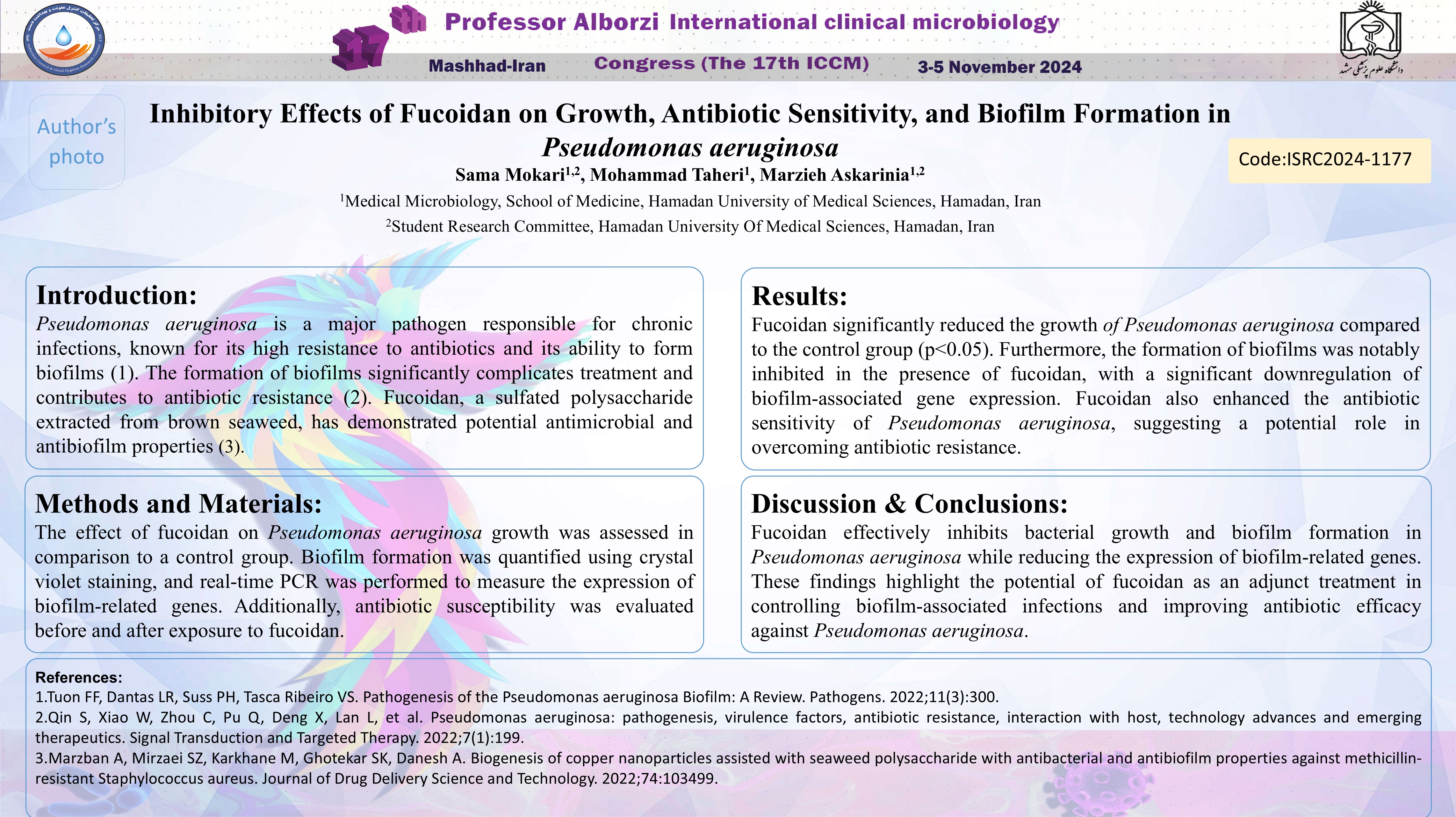اثرات مهاری فوکویدان بر رشد، حساسیت آنتی بیوتیکی و تشکیل بیوفیلم در سودوموناس آئروژینوزا
کد: G-1177
نویسندگان: سما مکاری ℗, محمد طاهری ©, مرضیه عسکری نیا
زمان بندی: زمان بندی نشده!
دانلود: دانلود پوستر
خلاصه مقاله:
خلاصه مقاله
Background: Pseudomonas aeruginosa is a major pathogen responsible for chronic infections, known for its high resistance to antibiotics and its ability to form biofilms. The formation of biofilms significantly complicates treatment and contributes to antibiotic resistance. Fucoidan, a sulfated polysaccharide extracted from brown seaweed, has demonstrated potential antimicrobial and antibiofilm properties. Methods: The effect of fucoidan on Pseudomonas aeruginosa growth was assessed in comparison to a control group. Biofilm formation was quantified using crystal violet staining, and real-time PCR was performed to measure the expression of biofilm-related genes. Additionally, antibiotic susceptibility was evaluated before and after exposure to fucoidan. Results: Fucoidan significantly reduced the growth of Pseudomonas aeruginosa compared to the control group (p0.05). Furthermore, the formation of biofilms was notably inhibited in the presence of fucoidan, with a significant downregulation of biofilm-associated gene expression. Fucoidan also enhanced the antibiotic sensitivity of Pseudomonas aeruginosa, suggesting a potential role in overcoming antibiotic resistance. Conclusion: Fucoidan effectively inhibits bacterial growth and biofilm formation in Pseudomonas aeruginosa while reducing the expression of biofilm-related genes. These findings highlight the potential of fucoidan as an adjunct treatment in controlling biofilm-associated infections and improving antibiotic efficacy against Pseudomonas aeruginosa.
کلمات کلیدی
Antibiotic resistance, Pseudomonas aeruginosa, Growth, Biofilm formation, Biofilm-related genes
